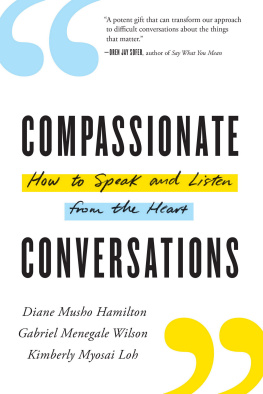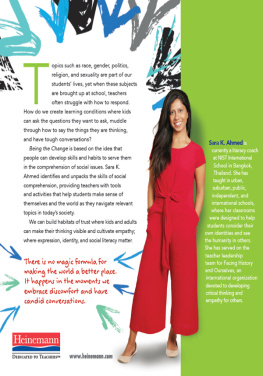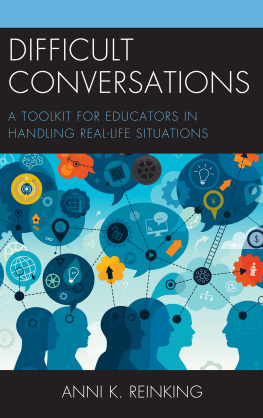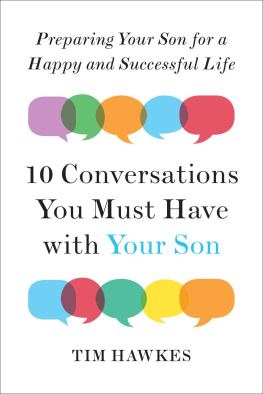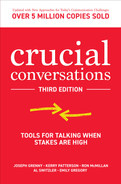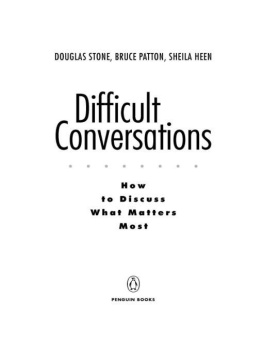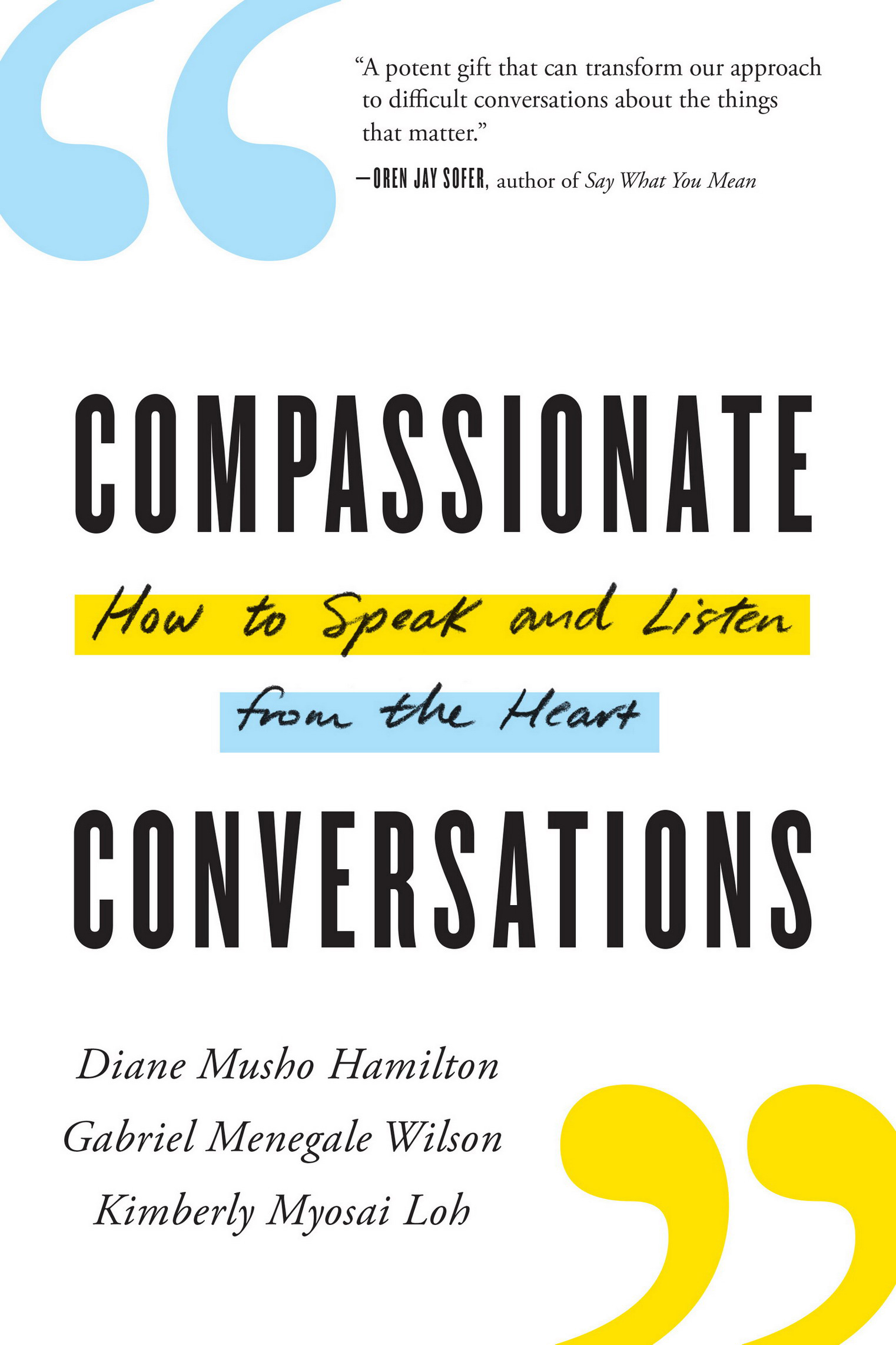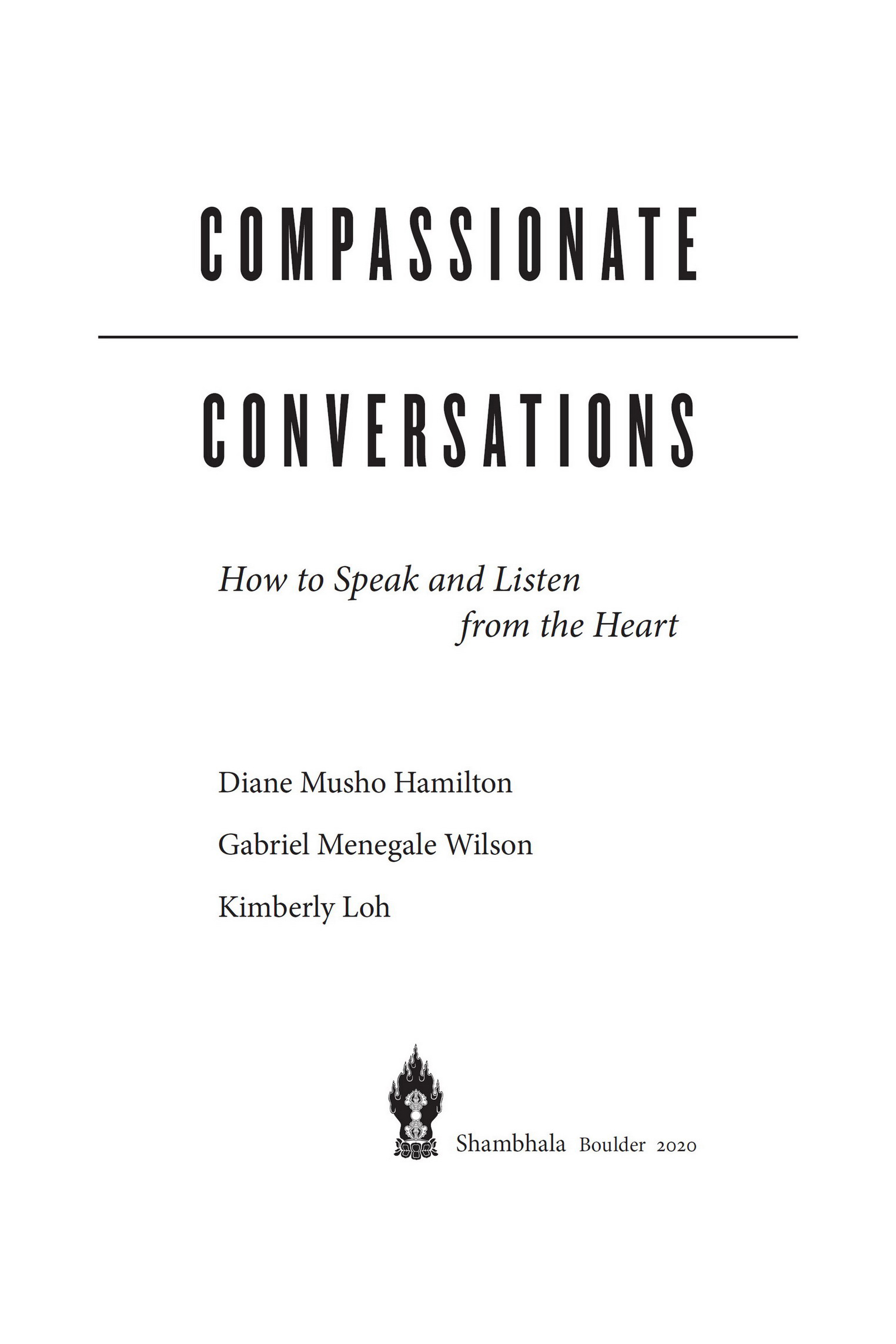Acknowledgments
We want to thank the people who have been helpful in bringing this book to print:
Jeff Salzman, Terry Patten, and Greg Thomas were extremely helpful in clarifying some of the ideas related to Integral Theory and its application to these conversations.
Randee Levine generously shared her teachings and experience regarding power relationships.
Our friends in the Freedom and Fairness workshops and online classes have given us confidence that compassionate conversations matter. We want to thank them for their sincere desire to learn, grow, and evolve our relationships.
Lisa Hartwick offered her wisdom and supported our faith in the tremendous importance of healing.
Willie Hamilton Smith provided us with excellent stories, insights, and wit.
A very special thank-you to Julia Sati, who refined our ideas and proofread the first draft with her unique devotion and rigor.
Much gratitude to our Shambhala editor, Sarah Stanton, for her interest in the content of this book.
Finally, we wish to extend our gratitude and love to Michael Zimmerman, Denise and Robert Wilson, Nado, Vov, Alana Felt, Jenny, Swee-Im, and David for their wholehearted support.
To Ken Wilber,
whose expansive vision and pioneering work
invites us into a more inclusive human story.
Shambhala Publications, Inc.
4720 Walnut Street
Boulder, Colorado 80301
www.shambhala.com
2020 by Diane Musho Hamilton, Gabriel Menegale Wilson, Kimberly Loh
Interior design: Greta D. Sibley
Cover design by Amanda Weiss
All rights reserved. No part of this book may be reproduced in any form or by any means, electronic or mechanical, including photocopying, recording, or by any information storage and retrieval system, without permission in writing from the publisher.
Library of Congress Cataloging-in-Publication Data
Names: Hamilton, Diane Musho, author. | Wilson, Gabriel Menegale, author. | Loh, Kimberly, author.
Title: Compassionate conversations: how to speak and listen from the heart/Diane Musho Hamilton, Gabriel Menegale Wilson, Kimberly Loh.
Description: First edition. | Boulder: Shambhala, 2020. | Includes bibliographical references and index.
Identifiers: LCCN 2019040810 | ISBN 9781611807783 (trade paperback)
eISBN 9780834842649
Subjects: LCSH: Interpersonal communication. | Conversation. | Interpersonal conflict. | Justice.
Classification: LCC BF637.C45 H32819 2020 | DDC 153.6-dc23
LC record available at https://lccn.loc.gov/2019040810
v5.4
a
Index
Note: Index entries from the print edition of this book have been included for use as search terms. They can be located by using the search feature of your e-book reader.
Adichie, Chimamanda Ngozi
aggression. See also microaggression
Alhamad, Alqumit
American Psychological Association
anger
bodily sensation of
in conversations
releasing
sadness and
as shadow
trauma and
white fragility and
anxiety
in conversations
as fear
from historical pain
of one-down dynamic
overcoming
praise and
role of nervous system in
apartheid
appreciation
of connection
of differences
expressing
mutual
of positive feelings
atonement
attention
to emotions
intention and
narrowing
of others, losing
to power dynamics
to present moment
trauma and
unconditional
awakening, spiritual
awareness
as curative
enhancing
heart and
in meditation
self-interest and
unconditioned
See also self-awareness
Barks, Coleman
Baruch, Bernard
bearing witness
bias
evaluating
gender
hidden
materialist view of
negativity
overcoming
systemic
big bang
birth. See also precious human birth
black churches
blind spots
bodhisattva vow
bodily sensations
in conflict
of emotions
of heart connection
in one-down dynamic
of others, relating to
presence with
of strong emotions
in transmuting emotions
in trauma
body-mind. See also mind-body feedback loop
Boyd, Merle Kodo
brain. See also frontal cortex; prefrontal cortex
breath
Buddha
Buddhism
Mahayana
Tibetan
See also Zen
Burning Man
Caldwell, Tommy
cancel culture,
Carlin, George
Catholicism
chakras
Chang, Chin-Chen
Chiggala Sutra
Childre, Doc
Children of Men, The (James)
China
Chinese tradition
climate change
cognition
Coherence (Watkins)
Collaborative Way, The (Fickett)
Colwell, Rebecca Ejo
commonalities
of authors
praise and
See also sameness
compassion
boundless
in community
cultivating
forgiveness and
in Kosmocentrism
from mistakes
natural arising of
under pressure
privilege and
as renewable resource
sadness and
spirituality and
tonglen in developing
of unbiased mind
conflict
in conversations
usefulness of
views of
connection
desire for
differences and
discomfort and
egocentrism and
pain and
praise and
reestablishing
through listening
conversation
about pain
about privilege
compassionate
conflict in
cultural transformation in
egocentrism in
emotions in
evolutionary context for
fear in
grief in
humanizing
Kosmocentrism in
pluralism in
political correctness in
power in
public
sadness in
shadow in
shared intention in
trauma and
conversational skills
agreement-keeping
being for each other
evolving
individual development, variance in
intention and
listening
mindfulness and awareness
need for
praise
six ground rules
straight talk
support and challenge
three perspectives, utilizing
courage
creativity
adversity and
challenges and
of conflict
evolution as
as power
shadow work and
through differences
criminal justice system
culture
appropriation of
bias regarding
conflict and
engaging
evolution of
identity and
power and
straight talk and
Dalai Lama, fourteenth (Tenzin Gyatso)
Dante
Dawn Wall, The,
de Chardin, Pierre Teilhard
death
depression
developmental psychology
developmental stages/identities. See also egocentrism; ethnocentrism; Kosmocentrism; Worldcentrism
Diamond, Julie
DiAngelo, Robin
differences
of authors
engaging
integrating
political correctness and
and sameness, relationship between
stress responses to
strong emotions and
valuing and devaluing
Worldcentrism and
Difficult Conversations (Stone, Patton, Heen)

